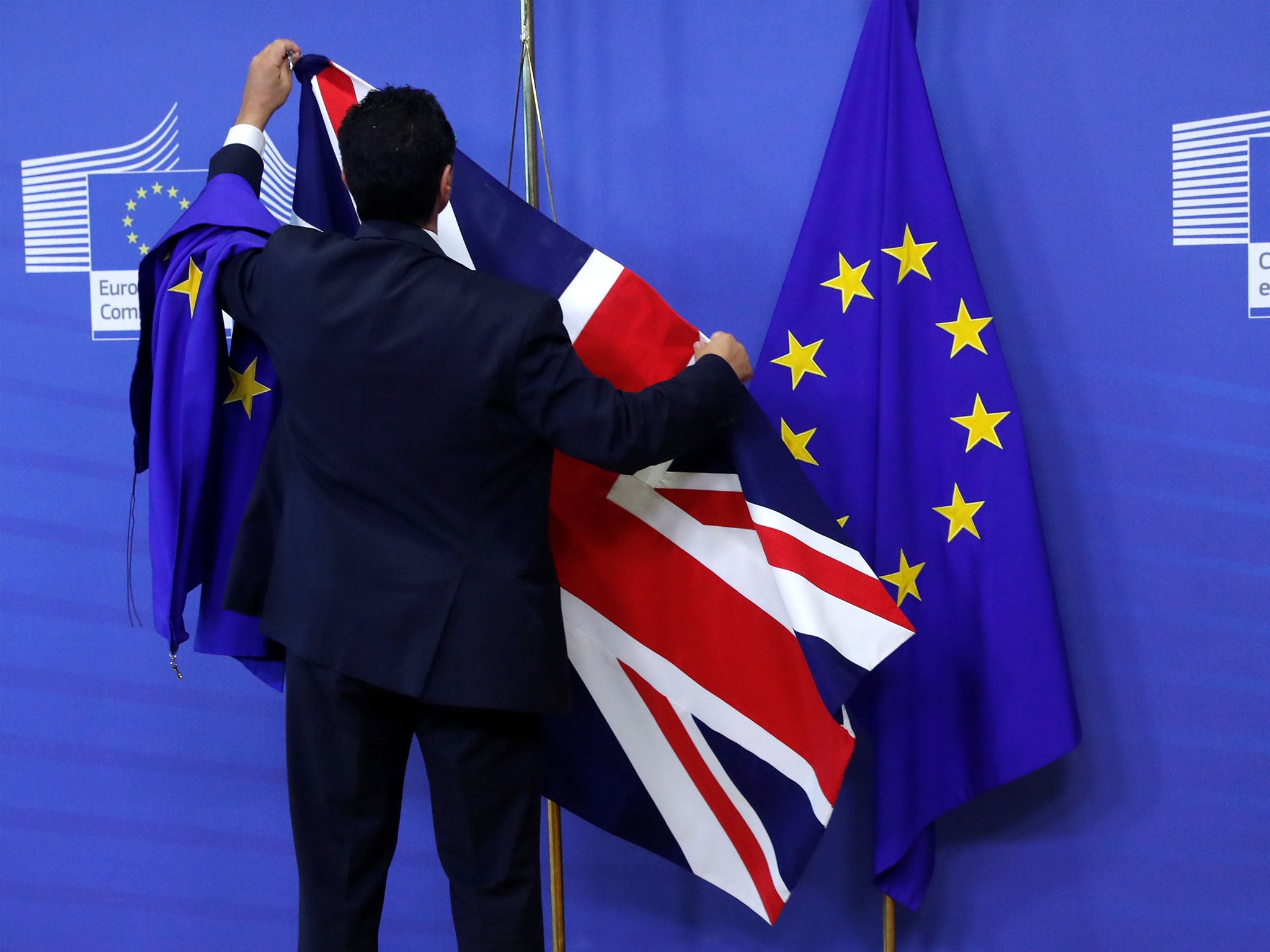Don't believe Brexiteers – globalisation isn't a bad thing, and it could be the solution to all of the left's problems
Only from the Reagan-Thatcher era in the 1980s onwards has globalisation become a byword for unfettered markets, no regulation, exploitation of labour and a blind eye to inequality. But globalisation can be good, so long as the losers are directly compensated. In Germany, former industrial workers are retrained by the state in high-paying industries like tech and science

Your support helps us to tell the story
This election is still a dead heat, according to most polls. In a fight with such wafer-thin margins, we need reporters on the ground talking to the people Trump and Harris are courting. Your support allows us to keep sending journalists to the story.
The Independent is trusted by 27 million Americans from across the entire political spectrum every month. Unlike many other quality news outlets, we choose not to lock you out of our reporting and analysis with paywalls. But quality journalism must still be paid for.
Help us keep bring these critical stories to light. Your support makes all the difference.
The past 12 months have been bad for the brand of globalisation. Brexit, Trump and a widespread rejection of multilateralism have overturned a 30-year consensus that globalisation is good.
In the US, President Trump has jettisoned the Transatlantic Trade and Investment Partnership (a move that left-winger Bernie Sanders supported), pulled out of the Paris Climate Accord, and denounced global leadership in favour of “America First”.
Meanwhile, the British Government is entirely consumed by its decision to surgically detach the UK from its own continent and largest trading partner. These are big changes for two nations who owe so much of their success to having reached out to the rest of the world.
So tarnished is the idea that a connected globe is better than a divided one that last November, journalist and left-wing commentator Paul Mason declared simply: “Globalisation is dead.”
Progressives should resurrect it. Good globalisation can serve the values that the left holds dear: brotherhood, economic opportunity and a refusal to see others as less because they live across a national boundary.
The European Coal and Steel Community was established in 1951 by six European countries who believed that economic integration would bring not just prosperity but also peace; the formerly bloody continent has not seen all-out war since. The General Agreement on Trade and Tariffs, signed in 1947, paved the way for exports to rise from 8.5 per cent of total gross world product in 1970 to 16.2 per cent in 2001.
Between 1963 and 2009, the number of students studying abroad increased nine-fold, and from 2001 to 2011, nearly 700 million people around the globe escaped poverty, according to the Pew Research Centre.
At home in Britain, an influx of immigrants from the Commonwealth after the Second World War alleviated a desperate labour shortage. Later, globalisation meant that baby boomers could buy fruits in the supermarket that their parents couldn’t have imagined when they were young. It has brought us the iPhone, the doner kebab and the army of nurses and doctors who keep the NHS ticking over.
Many of globalisation’s parents were progressives. John Maynard Keynes, for example, the great challenger of neoclassical economics, was the architect of much of the post-war international economic order, including the International Bank for Reconstruction and Development and the International Monetary Fund. From the Attlee government of 1945-1951 to student protests in the 1960s, the left saw internationalism as an antidote to nationalism.
This is important history. It proves a key point: that there is nothing inherently neoliberal about globalisation. Nor is globalisation all about economics. Only from the Reagan-Thatcher era in the 1980s onwards has globalisation become a byword for unfettered markets, no regulation, exploitation of labour and a blind eye to inequality.
It is precisely for these reasons that support for globalisation has plummeted. Its opponents make good arguments: trade deals which promote profit over people have left some behind, like the white working class in America’s Rust Belt who expressed their disenchantment in the 2016 presidential election.
It is not too late for progressives to save globalisation by reclaiming it. Three changes are required.
First, we must remind people that globalisation is about more than just economics: climate change, terrorism, refugee crises and more are all problems whose solutions require international cooperation.
Second, globalisation must be a means, not an end. It is a means towards promoting progressive values, not a false deity to be worshipped at the expense of those values. A depressing example is Britain and America’s continued sale of arms to Saudi Arabia, a nation which then uses those weapons for a brutal war in Yemen which has so far cost at least 10,000 lives.
Finally, gains from globalisation must truly go to the many, not the few. Unjustified levels of inequality have left millions rightly frustrated, watching Ferraris roar down the streets of London while their families cannot afford roofs above their heads.
The solution is not to eschew globalisation, but to implement better taxation, investment and redistribution systems to make sure its gains are distributed fairly. Further, the direct losers from globalisation must be directly compensated. In Germany, former industrial workers are retrained by the state in high-paying industries like tech and science.
Progressives have always believed that “we’re all in this together” is a better mantra than “you’re on your own”. Globalisation is the practical application of this. Now is the time to reclaim it.
Benjamin Clayton is a Fellow at Harvard University’s Kennedy School of Government. He was previously Chief of Staff at the British government’s National Infrastructure Commission
Join our commenting forum
Join thought-provoking conversations, follow other Independent readers and see their replies
Comments